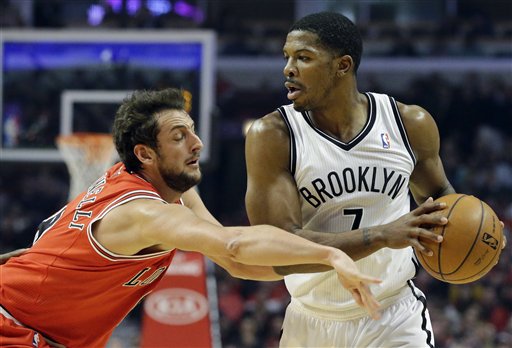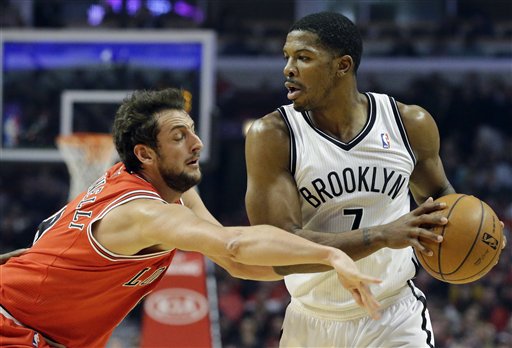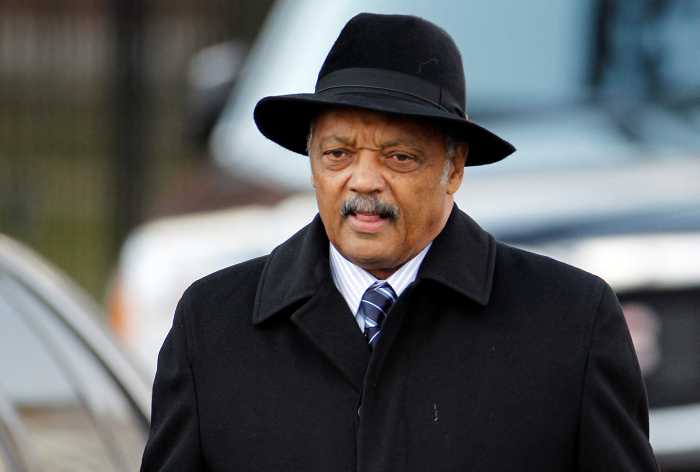
At Brooklyn Nets head coach Jason Kidd’s media availability yesterday at the Nets practice facility, one of the obvious questions that came up was his late-game strategy: on a team with so much offensive firepower, who’s going to take the last shot?
Here’s how Kidd started and ended his answer:
Well, if you’re into analytics, you would look at Joe Johnson as the clear-cut, of the guy taking the last-second shot. He was 9 for 10 with 24 seconds or less, so that would be your guy that could, who’s the closer. … If you’re looking at stats, which a lot of you guys do, Joe Johnson is the name that comes first.
That seems simple and straightforward enough. Johnson is the guy with the late-game track record, so Johnson gets the look.
But what’s lost in that story is the ellipsis in the middle, which is the crux of what Kidd’s saying about how he wants to approach late-game situations. Here’s the full quote, with bold emphasis mine:
Well, if you’re into analytics, you would look at Joe Johnson as the clear-cut, of the guy taking the last-second shot. He was 9 for 10 with 24 seconds or less, so that would be your guy that could, who’s the closer. But the game of basketball is something that, you put five guys out there and you draw up a play for your- for one player, most of the time it doesn’t end up being that one guy taking that shot. He creates a problem, which results in one of his teammates getting a wide open look, and make or miss, it’s the right basketball play. So for us, it’s about making the right basketball play at the end. But if you’re looking at stats, which a lot of you guys do, Joe Johnson is the name that comes first.
What Kidd is advocating here then isn’t that Johnson takes the last shot — it’s that the Nets run through their options and make the “best basketball play.” It’s not about having the guy who made the most shots in clutch situations last year (and for the record, Johnson going 9-10 in clutch situations last year isn’t really “analytics” so much as it is “counting ten of his shots from last season”), it’s about finding the best opportunity to score. It’s about trust in your system, starting at the top with your stars and trickling down to your role players. It’s a very San Antonio Spurs mentality, which is how they came within a breath of beating the Miami Heat in the NBA Finals last year.
That’s what impressed me most about Kidd. I’ve been covering the Nets as some weird cross-section of editor, reporter, and fanalyst for about three years now, and at this point I’m known as the “analytics” guy on the Nets beat, the guy who looks at stats and looks for patterns in the numbers more than anyone else. So the joke was that once Kidd mentioned analytics, I’d be swooning. But the exact opposite is true: Kidd’s not putting as much stock in the numbers (he said stats were something we the media looked at, not him) as he is in making the right basketball play. That’s exactly what he should do.
That’s not to say that Kidd doesn’t trust Johnson in crunch time, but that his trust doesn’t automatically mean backpedaling into the predictably banal isolation offense that ruined the Nets last season. Instead, that might mean that the ball starts in Johnson’s hands, but Kidd doesn’t expect it to end with him shooting. Or maybe the ball starts in Deron Williams’s hands, and ends up in Johnson’s for an open three. Or some other of dozens of potential combinations. Maybe Joe Johnson does get an isolation, but it won’t be for the sake of isolating him; it’ll be for the sake of getting off the best shot possible.
In the end, Kidd gave the media a name to run with, but he also gave credence to the proper way to play basketball: find the best shot on the floor, regardless of what the guy’s name is. We’ll see if it plays out that way when the team hits the floor, but his insistence on playing basketball for the sake of basketball gives me hope. After all, the names on the back of the jersey aren’t as important as getting a win for the borough on the front.















